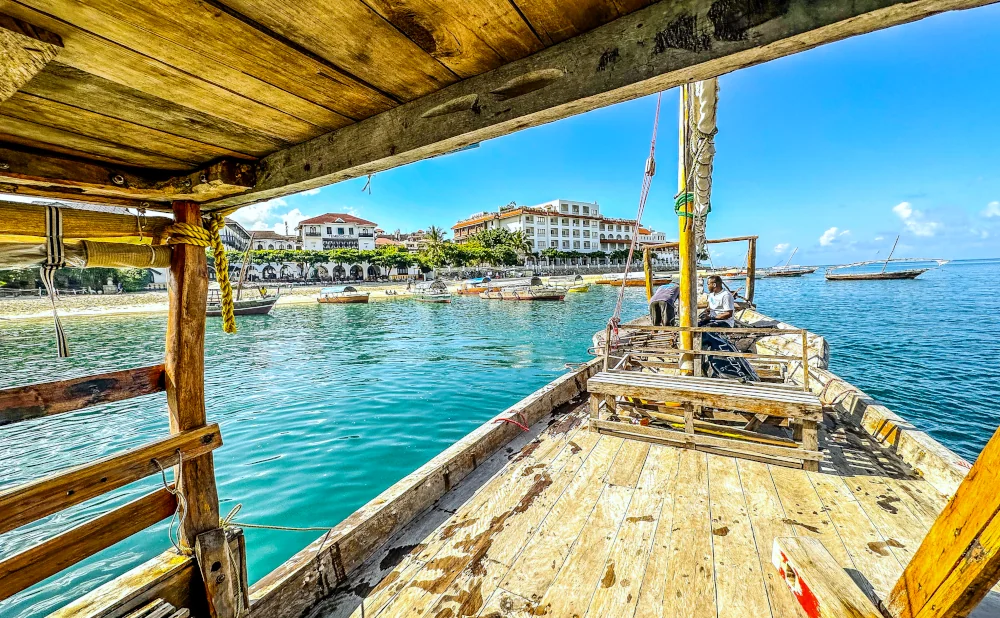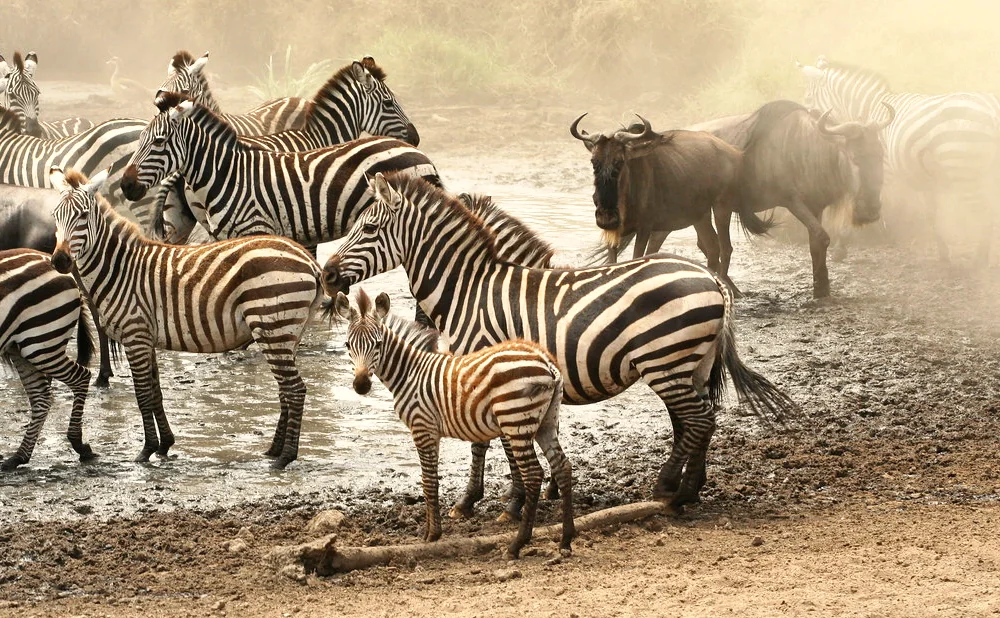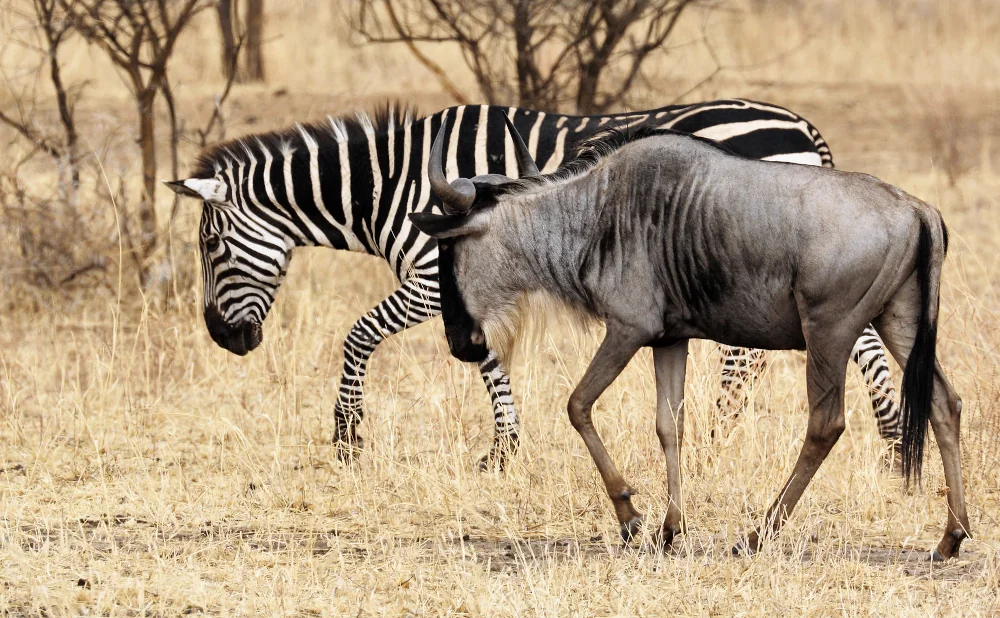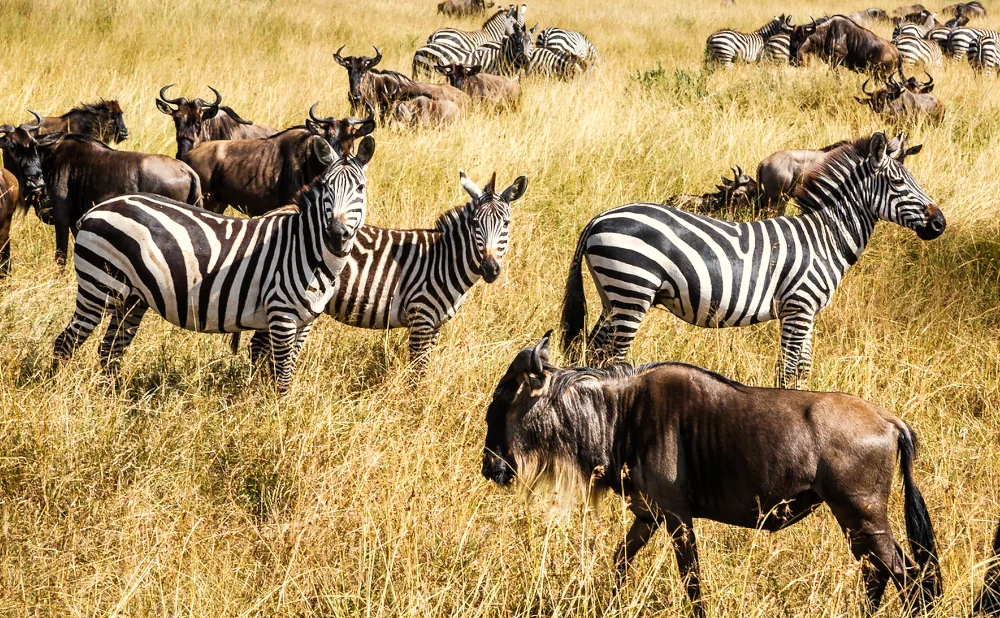which country in africa is best for safari
Africa is a continent of vast landscapes and diverse wildlife. It's a place where nature's drama unfolds in the most spectacular ways.
One of the best ways to experience this is through a safari.
A safari in Africa is not just a holiday. It's an adventure that takes you into the heart of the wild. It's a journey that brings you face-to-face with nature at its most raw and beautiful.
But with so many countries and parks to choose from, where should you go? Which country in Africa is best for safari?
This guide aims to answer that question. We'll delve into the factors that make a safari destination "the best". We'll explore the wildlife, the conservation efforts, the visitor experiences, and the unique offerings of each place.
We'll take a closer look at Tanzania, a country renowned for its safari experiences. We'll journey through the Serengeti, the Ngorongoro Conservation Area, and the Tarangire National Park. We'll also explore the cultural experiences that make a Tanzanian safari unique.
But Tanzania is not the only country that offers exceptional safari experiences. We'll also explore other top safari countries in Africa, including South Africa, Botswana, Kenya, and Namibia.
Planning a safari can be daunting. There are many factors to consider, from the best time to visit to the budget and travel requirements. We'll provide practical tips and considerations to help you plan your African safari adventure.
Whether you're a seasoned traveler or planning your first safari, this guide is for you. It's a comprehensive resource that will help you make an informed decision and plan the safari adventure of a lifetime.
So, are you ready to embark on this journey? Let's explore the best African safari destinations.
""
Understanding the African Safari Experience
The African safari experience is unlike any other. It's a journey into the wild, where you can witness nature's drama unfold in real-time.
A safari is not just about spotting wildlife. It's about immersing yourself in the African wilderness. It's about experiencing the thrill of the chase, the tension of the hunt, and the awe of witnessing nature's cycles of life and death.
But a safari is also about understanding the importance of conservation. It's about seeing firsthand the efforts to protect Africa's wildlife and their habitats. It's about learning how tourism can contribute to these efforts and support local communities.
The safari experience has evolved over the years. From the hunting expeditions of the past, it has transformed into a journey of discovery and conservation. Today, a safari is about observing and appreciating wildlife in their natural habitats, not hunting them.
""
The Origins and Evolution of Safari
The word "safari" comes from the Swahili word for "journey". It originated in East Africa, where local tribes would embark on long hunting expeditions.
These early safaris were focused on hunting. European explorers and colonists would embark on these expeditions for sport and trophies. This led to a decline in wildlife populations and sparked the need for conservation.
The 20th century saw a shift in the safari experience. Hunting was replaced by photography and observation. National parks and game reserves were established to protect wildlife and their habitats.
Today, the safari experience is centered around conservation and education. It's about appreciating wildlife in their natural habitats and understanding the importance of protecting these ecosystems.
Types of Safaris: From Photographic to Walking
There are many types of safaris to choose from, each offering a unique experience.
Photographic Safaris: These are the most common type of safari. They focus on wildlife observation and photography. They offer the opportunity to capture stunning images of Africa's wildlife in their natural habitats.
Walking Safaris: These safaris offer a more intimate experience with nature. Accompanied by a guide, you explore the wilderness on foot. It's a chance to learn about the smaller creatures and plants that are often overlooked on vehicle safaris.
Balloon Safaris: These safaris offer a bird's eye view of the landscape. Floating in a hot air balloon, you can witness the sunrise over the savannah and spot wildlife from above.
Horseback Safaris: These safaris offer a unique way to explore the wilderness. Riding on horseback, you can cover more ground and get closer to wildlife.
Night Safaris: These safaris offer the chance to observe nocturnal wildlife. Guided by a spotlight, you can spot creatures that are often hidden during the day.
Each type of safari offers a unique perspective on the African wilderness. The choice depends on your interests, fitness level, and the kind of experience you're looking for.
""
Key Factors in Choosing the Best Safari Destination
Choosing the best safari destination depends on several factors. Each country in Africa offers a unique safari experience. The key is to find the one that matches your interests and expectations.
The first factor to consider is the wildlife. Each country has its unique species and wildlife experiences. Some are known for the Big Five (lion, leopard, rhinoceros, elephant, and Cape buffalo), while others offer unique sightings of gorillas, cheetahs, or rare bird species.
Conservation efforts are another important factor. Many safari destinations are at the forefront of wildlife conservation. They offer the opportunity to learn about these efforts and contribute to them.
Accessibility is also crucial. Some destinations are easier to reach and navigate than others. This can influence the cost and duration of your safari.
Accommodation options can also affect your decision. From luxury lodges to budget campsites, each destination offers different types of accommodations.
Finally, consider the cultural experiences. Some destinations offer the opportunity to interact with local communities and learn about their traditions.
""
Wildlife Diversity and Conservation Efforts
Wildlife diversity is a key factor in choosing a safari destination. Each country in Africa boasts a unique array of wildlife species.
For instance, Tanzania is renowned for the Great Migration. This annual event sees millions of wildebeest, zebras, and gazelles traverse the Serengeti plains. It's one of the most spectacular wildlife events on the planet.
Botswana, on the other hand, is known for its elephant population. The country's Chobe National Park is home to the largest concentration of elephants in Africa.
Conservation efforts are also crucial. Many safari destinations are making significant strides in wildlife conservation. They are implementing anti-poaching measures, promoting sustainable tourism, and educating visitors about conservation.
Choosing a destination that prioritizes conservation allows you to contribute to these efforts. Your visit can support local economies, fund conservation projects, and help protect Africa's wildlife for future generations.
""
Accessibility and Accommodation Options
Accessibility is another important factor. Some safari destinations are more accessible than others. This can influence the cost, duration, and ease of your safari.
For instance, South Africa's Kruger National Park is easily accessible. It's well-connected by road and air, making it a popular choice for first-time safari-goers.
On the other hand, destinations like Botswana's Okavango Delta are more remote. Reaching these destinations can be more challenging, but they offer a more exclusive and off-the-beaten-path experience.
Accommodation options also vary between destinations. Some offer luxury lodges with all the comforts and amenities. Others offer budget-friendly campsites for a more rustic experience.
Choosing the right accommodation depends on your budget and preferences. Whether you prefer the luxury of a lodge or the authenticity of a tented camp, there's a safari destination for you.
""
Cultural Experiences and Community Impact
A safari is not just about wildlife. It's also about the people who call these landscapes home. Cultural experiences can enrich your safari and provide a deeper understanding of Africa.
Many safari destinations offer cultural tours or community visits. These experiences allow you to interact with local communities, learn about their traditions, and support their livelihoods.
For instance, in Tanzania, you can visit a Maasai village. Here, you can learn about the Maasai's semi-nomadic lifestyle, their traditional dances, and their deep connection with the land.
Community impact is also important. Many safari operators work closely with local communities. They provide employment, support local businesses, and contribute to community development projects.
Choosing a safari that supports local communities allows you to make a positive impact. It ensures that your visit benefits the people who live alongside Africa's wildlife.
""
Tanzania: A Premier Safari Destination
Tanzania is often hailed as one of the best African safari destinations. It offers a diverse range of wildlife experiences, stunning landscapes, and rich cultural encounters.
The country is home to several world-renowned national parks and game reserves. These include the Serengeti National Park, Ngorongoro Conservation Area, and Tarangire National Park.
Tanzania is also the stage for the Great Migration. This annual wildlife spectacle is one of the most sought-after safari experiences.
In addition to its wildlife, Tanzania offers cultural richness. Visitors can interact with local tribes such as the Maasai and learn about their traditions.
Tanzania's commitment to conservation is also commendable. The country has dedicated a significant portion of its land to wildlife conservation.
""
The Serengeti and the Great Migration
The Serengeti National Park is Tanzania's most famous safari destination. It's known for its vast plains, abundant wildlife, and the Great Migration.
The Great Migration is an annual event where millions of wildebeest, zebras, and gazelles move across the Serengeti. They are followed by predators, creating dramatic wildlife encounters.
This natural spectacle is a highlight of any safari in Tanzania. It offers unparalleled wildlife viewing and photographic opportunities.
The Serengeti is also home to a large population of lions, leopards, and cheetahs. It's one of the best places in Africa to see these predators in action.
""
Ngorongoro Conservation Area: A Natural Wonder
The Ngorongoro Conservation Area is another must-visit destination in Tanzania. It's known for its unique ecosystem and diverse wildlife.
The centerpiece of the area is the Ngorongoro Crater. This large volcanic caldera is home to a high concentration of wildlife. It's one of the best places in Africa to see the Big Five.
The conservation area is also a UNESCO World Heritage site. It's recognized for its natural beauty and its contribution to wildlife conservation.
Visiting the Ngorongoro Conservation Area offers a unique safari experience. It combines wildlife viewing with stunning landscapes and cultural encounters.
""
Tarangire National Park and the Elephant Haven
Tarangire National Park is another highlight of Tanzania's safari circuit. It's known for its large elephant population and baobab trees.
The park offers excellent wildlife viewing, especially during the dry season. Elephants, zebras, wildebeest, and giraffes gather around the Tarangire River, providing excellent wildlife sightings.
Tarangire is also a birdwatcher's paradise. It's home to over 500 bird species, making it one of the most diverse birding destinations in Tanzania.
A safari in Tarangire offers a quieter and less crowded experience. It's a great addition to any Tanzanian safari itinerary.
""
Beyond Wildlife: Cultural Richness and the Maasai
A safari in Tanzania is not just about wildlife. It's also about the people and their cultures.
The Maasai are one of the most well-known tribes in Tanzania. They are semi-nomadic herders, known for their distinctive customs and dress.
Many safari operators offer cultural tours to Maasai villages. These tours provide insights into the Maasai's way of life, their traditions, and their relationship with the wildlife.
Experiencing the Maasai culture adds a unique dimension to a Tanzanian safari. It offers a deeper understanding of the people who live alongside the wildlife.
""
Other Top Safari Countries in Africa
While Tanzania is a premier safari destination, Africa offers a wealth of other incredible safari experiences. Each country has its unique offerings, from diverse wildlife to stunning landscapes.
South Africa, Botswana, Kenya, and Namibia are among the top safari countries in Africa. They each offer unique safari experiences that cater to different interests and preferences.
Whether you're looking for a self-drive safari, a luxury experience, or a conservation-focused trip, these countries have something to offer. Let's explore what each of these countries has to offer.
""
South Africa: The Kruger National Park and Beyond
South Africa is a popular safari destination, known for its accessibility and diversity. The Kruger National Park is one of the most famous safari parks in the country.
Kruger offers excellent wildlife viewing, including the Big Five. It's also one of the few parks in Africa that allows for self-drive safaris.
Beyond Kruger, South Africa has a range of other safari destinations. These include the malaria-free Madikwe Game Reserve and the exclusive Sabi Sand Game Reserve.
South Africa also offers a range of accommodation options. From luxury lodges to budget-friendly campsites, there's something for every traveler.
""
Botswana: Exclusive and Eco-Friendly Safaris
Botswana is known for its commitment to conservation and high-quality safari experiences. The country offers some of the most exclusive and eco-friendly safaris in Africa.
The Okavango Delta is a highlight of any Botswana safari. This unique inland delta offers a unique water-based safari experience.
Botswana also offers the opportunity to explore the Kalahari Desert. This vast desert landscape is home to unique wildlife, including the desert-adapted black-maned lion.
Botswana's commitment to low-impact tourism means that it offers some of the most exclusive safari experiences in Africa.
""
Kenya: The Masai Mara and Conservation Success Stories
Kenya is another top safari destination in Africa. The country is known for its diverse wildlife and stunning landscapes.
The Masai Mara is Kenya's most famous safari destination. It's known for its abundant wildlife and its role in the Great Migration.
Kenya is also a leader in conservation efforts. The country has made significant strides in protecting its wildlife, including elephants and rhinos.
A safari in Kenya offers the opportunity to witness these conservation success stories firsthand.
""
Namibia: Desert Landscapes and Etosha National Park
Namibia offers a unique safari experience, characterized by its desert landscapes. The country is home to a range of unique wildlife adapted to these arid conditions.
Etosha National Park is one of the top safari destinations in Namibia. The park is known for its salt pan, which attracts a range of wildlife, especially during the dry season.
Namibia also offers the opportunity to explore the Namib Desert, the oldest desert in the world. This stunning landscape offers a unique backdrop for a safari.
A safari in Namibia offers a unique and diverse experience, different from the traditional savannah safaris.
""
Planning Your African Safari: Practical Tips and Considerations
Planning an African safari can be an exciting process. However, it also involves careful consideration of various factors. These include the best time to visit, budgeting, health and safety, and packing essentials.
Understanding these factors can help you make the most of your safari experience. It can also ensure that your trip is not only enjoyable but also responsible and sustainable.
""
Best Time to Visit and Weather Conditions
The best time to visit for a safari often depends on the specific country and wildlife you want to see. Generally, the dry season is considered the best time for wildlife viewing. This is when animals congregate around water sources, making them easier to spot.
However, the wet season can also offer unique experiences. For instance, it's the best time to witness the Great Migration in Tanzania and Kenya. It's also when landscapes are lush and birdlife is abundant.
It's important to research the specific weather conditions and wildlife behavior in your chosen destination. This will help you decide on the best time for your safari.
Budgeting for Your Safari: From Luxury to Affordable Options
Safaris can range from luxury experiences to more affordable options. The cost can depend on various factors, including the destination, type of accommodation, and length of stay.
Luxury safaris often include high-end lodges, private game drives, and gourmet meals. On the other hand, budget safaris might involve camping and self-drive game drives.
It's important to set a budget for your safari and consider what experiences and amenities are most important to you. This can help you choose the right safari package for your needs.
""
Health, Safety, and Travel Requirements
Health and safety are important considerations when planning a safari. This includes vaccinations, malaria prevention, and travel insurance.
It's recommended to consult with a travel health professional before your trip. They can provide advice on necessary vaccinations and health precautions.
Safety considerations also include understanding the rules and regulations of the safari parks. This is crucial for ensuring your safety and the welfare of the wildlife.
Travel requirements can include visas and entry regulations. It's important to research these requirements for your specific destination.
Packing Essentials and Sustainable Tourism Practices
Packing for a safari involves considering the weather conditions, activities, and local customs. Essentials often include comfortable clothing, a good pair of binoculars, and a camera.
Sustainable tourism practices are also important to consider. This can include respecting wildlife, minimizing waste, and supporting local communities.
By packing appropriately and practicing sustainable tourism, you can contribute to the conservation efforts and community development in your safari destination.
""
Making the Most of Your African Safari Adventure
An African safari is more than just a vacation. It's an opportunity to immerse yourself in the wonders of nature, witness wildlife in their natural habitats, and learn about different cultures. It's an experience that can leave you with lifelong memories and a deeper appreciation for our planet.
Choosing the best safari destination involves considering various factors. These include wildlife diversity, conservation efforts, accessibility, and cultural experiences. Each country in Africa offers unique safari experiences, from the Great Migration in Tanzania to the desert landscapes of Namibia.
Planning your safari involves practical considerations such as the best time to visit, budgeting, health and safety, and packing essentials. By understanding these factors, you can ensure a smooth and enjoyable safari experience.
In the end, the most important thing is to respect the wildlife and the environment, support local communities, and embrace the adventure. With the right planning and mindset, your African safari can be a truly transformative experience.











